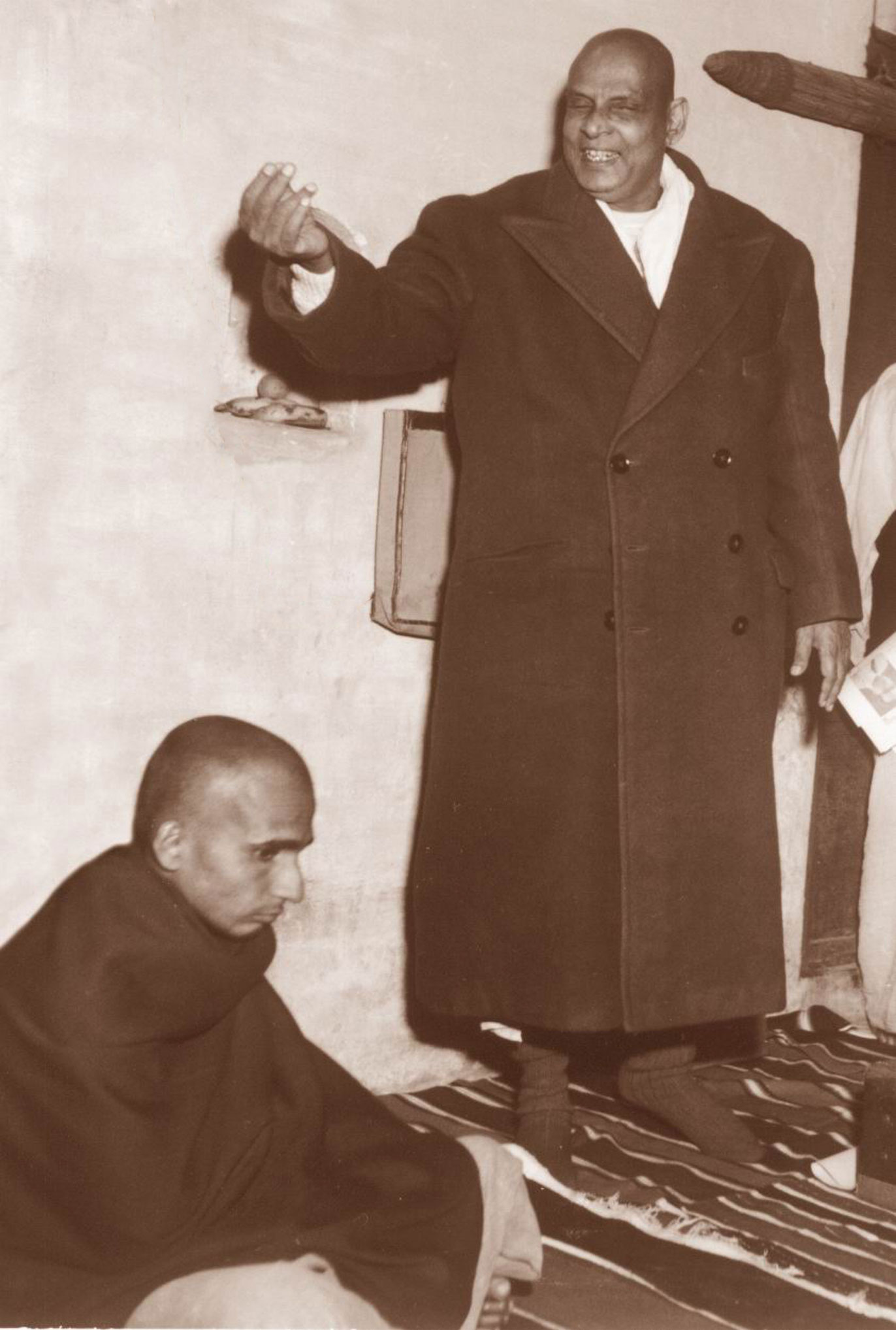The Moksha Gita: Swami Sivananda // Commentary: Chapter 10-5&6 : Swami Krishnananda.
================================================================
Tuesday, 05 Sep 2023 07:30.
The Moksha Gita: Swami Sivananda
Chapter 10: The State of Jivanmukti-5 & 6.
Commentary: Swami Krishnananda.
================================================================
5.
"The sage who has destroyed all his desires and egoism, who is always calm and serene, equanimous, who does not see any distinction of form and who has freed himself from delusion or ignorance shines brilliantly."
==============================================================
Commentary
The state of the Jivanmukta is the consciousness of the consummation of spiritual attainments. The expanding nature of consciousness finds its Destination reached and having expanded itself beyond space and limitation, rests in a state of undisturbed changelessness, where Fullness, Peace and Bliss become the centre of Experience.
When the universal generalisation of the being of consciousness is effected, the particularised form of consciousness as egoism is withdrawn into the background of the vast Sea of Consciousness. Together with this withdrawal of the ego, its further ramifications in the form of the sense forces are also drawn back to the source and the common distraction of the subtle body is made to return to the tranquillity and equanimity of harmonious awareness. Hence distinction of form is not perceived when ignorance is completely removed.
A Jivanmukta who is in the seventh Jnana-Bhumika cannot do any action in the plane of earthly consciousness. Those of the Jivanmuktas who wish to do Loka-sangraha have to come down to the fourth or the fifth state of Consciousness in order to be useful to humanity. A little of Rajas is necessary for doing all kinds of action. The pure Sattwa state of the highest kind of Jivanmuktas is completely devoid of Rajas and hence is unsuitable for working in the world. The very existence of such a blessed being will give solace to the whole world. His life itself is the most supreme teaching and help. Wherever he is, he spreads around him such a force of conscious equilibrium of being that those who are near him are easily transformed. The Satsankalpa of the Jnani is beyond all powers of Ashta-Siddhis and Nava-Riddhis and he works through his mere Self which is in all. He is the ocean of Knowledge and Power and there is nothing that is impossible for him.
===============================================================
6.
"The Jivanmukta rests with an unshaken mind in the All-blissful Brahman. He is free from all the modifications of the mind. His heart is pure like the Himalayan snow or the crystal. He is free from the distinctions – I, He, Thou."
==============================================================
The Jivanmukta rests in the All-Blissful Brahman and yet lives like man in order to be of help to him. The Jnani alone is the really good man, the really kind person, and the really selfless worker. Those who struggle to be good are only superficially good. They can only pretend to be good, humble, kind, merciful and compassionate. How can those, who do not know the nature of the Self, who do not know the exact character of things, who cannot understand the feelings of others, be really good and compassionate? The great love of the Jnani for all creatures of the universe cannot be equalled by any other's love or compassion. The love of the Jnani is real love. It is only the Jnani that can serve and help the world in the best possible way, for he knows that all is the one Self, the Great Being of Brahman. Without knowing this, how can one be truly good and virtuous? A man who does service without the knowledge of the Self, cannot be really selfless. How can he drive away selfishness unless he knows the Absoluteness of Existence? How can he get rid of egoism who does not feel that he is one with Being itself? The ideas of doership and enjoyership cannot be overcome without Self-Knowledge.
The love of the Jnani is called universal love. The love of the worldly man is physical love. He does not love all equally; there is partiality in love. Man loves and serves only those whom he likes. He cannot love and serve those who hate him, who beat him and who abuse him always. This is because he has no knowledge of the Self. The Jnani loves all equally, for his is transcendental love. He loves others because he loves his own Self. He alone exists everywhere.
*****
To be continued
================================================================










Comments